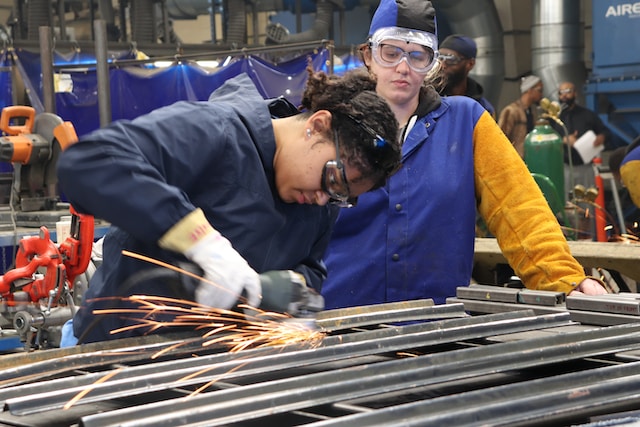Are you considering a career change or looking to advance your current position? With the rapidly changing job market, it’s important to have the right skills and training to succeed. This is where vocational training and job skills programs can make a significant difference in your career prospects.
What is vocational training? Vocational training refers to education and training that is focused on providing specific job skills and preparing individuals for specific careers. These programs are designed to equip students with the knowledge and practical skills needed to succeed in their chosen field.
Here are some benefits of vocational training:
- Practical Training: Vocational training programs are designed to provide hands-on, practical training that prepares students for the real-world demands of their chosen field.
- Job-Specific Skills: These programs provide students with the skills and knowledge required for a particular job or career. This focused training can help students to stand out to potential employers.
- Faster Entry into the Workforce: Vocational training programs are often shorter in duration than traditional college degree programs, allowing students to enter the workforce more quickly.
- Career Advancement: Many vocational training programs are designed to help students advance their careers by providing additional training and certification.
Some examples of vocational training programs include:
- Medical Assistant Training: Medical assistant training programs provide students with the skills and knowledge necessary to work as medical assistants in healthcare facilities.
- Automotive Technology Training: Automotive technology training programs provide students with the skills and knowledge necessary to work as automotive technicians.
- Cosmetology Training: Cosmetology training programs provide students with the skills and knowledge necessary to work as hair stylists, makeup artists, and nail technicians.
- Culinary Arts Training: Culinary arts training programs provide students with the skills and knowledge necessary to work in the foodservice industry as chefs, cooks, and bakers.
In addition to vocational training programs, job skills programs can also help you advance your career. These programs are designed to help individuals develop the skills necessary to succeed in the modern workforce. Some examples of job skills programs include:
- Computer Skills Training: Computer skills training programs provide individuals with the skills and knowledge necessary to work with computers and software programs.
- Business Skills Training: Business skills training programs provide individuals with the skills and knowledge necessary to succeed in the business world, such as communication, leadership, and project management skills.
- Language Training: Language training programs provide individuals with the skills and knowledge necessary to speak, read, and write in another language.
If you’re interested in vocational training or job skills programs, there are many resources available to help you find the right program for your needs. Start by researching programs in your area or online, and talk to professionals in your desired field to learn more about the skills and training needed to succeed.
In conclusion, vocational training and job skills programs can be an excellent way to advance your career and gain the skills necessary to succeed in the modern workforce. With a focus on practical training and job-specific skills, these programs can help you stand out to potential employers and achieve your career goals.








Leave a Reply